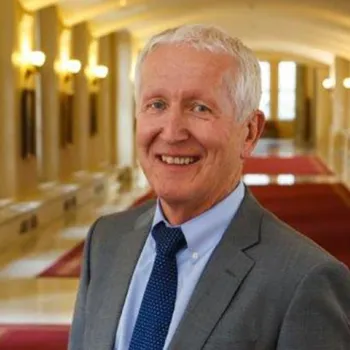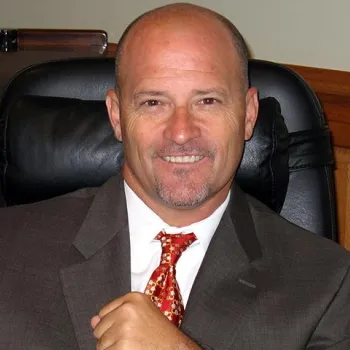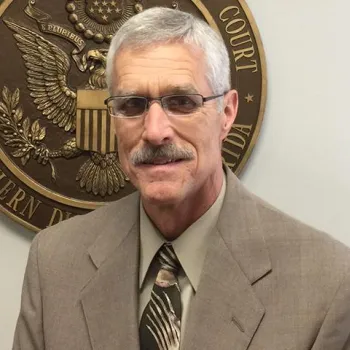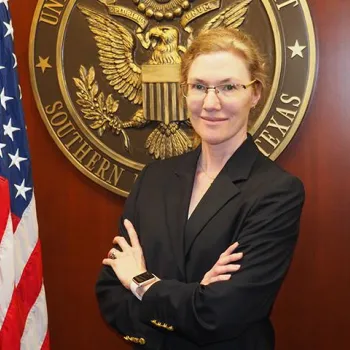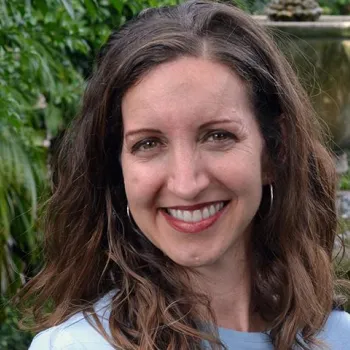Attracting, training, and retaining a skilled and diverse workforce are hallmarks of the federal Judiciary. Critical support systems and innovative human resources practices are vital to the efficient operation and management of the Judiciary.
Work Measurement Formulas
In September 2017, the Judicial Conference approved new or updated staffing formulas for bankruptcy clerks’ offices, court reporters, pro se law clerks, and death penalty law clerks. The formulas are based on data from more than 6,300 Judiciary personnel. Under the new formulas, nationally, pro se law clerks gained 12 full-time-equivalent (FTE) positions above the previous formula allocation, and death penalty clerks gained eight FTE positions. Bankruptcy clerks were reduced by 41 FTE positions from the fiscal year 2017 allocation level, and court reporters by 71 FTE positions. However, both the bankruptcy and court reporter formulas allow for growth above fiscal year 2017 onboard staffing levels.
Human Resources Management Information System
The Human Resources Management Information System (HRMIS) was enhanced with a new-employee suitability function aimed at making the courts’ onboarding process more efficient. The new tool enables human resources professionals to better manage requests for background checks and investigations of candidates for jobs in the Judiciary. The HRMIS remote data entry function was also updated to automate personnel transfers between courts or between courts and other Judiciary offices. A group of court units is piloting the solution, which should improve efficiency, visibility, and security, and provide smoother transitions for transferring personnel.
Diversity Outreach
The Judiciary is committed to fair employment practices and a diverse workforce. Since 2010, the Administrative Office of the U.S. Courts (AO) has facilitated local court participation in 123 career fairs and legal recruiting events, resulting in direct contacts with more than 11,000 students. The AO coordinates attendance by judges and court staff at local career fairs, where they can meet one-on-one with diverse pools of potential employees and highlight the Judiciary as a desirable employer.
Another outreach effort is the Summer Judicial Internship Program, which pairs federal judges with a diverse pool of highly qualified law students in summer internships. Since the program began in 2010, nearly 400 students have been placed with 127 judges. In 2017, 230 applicants from more than 40 law schools applied and 62 were placed. The program is a partnership of the Judicial Conference’s Committee on Judicial Resources with an educational foundation called Just the Beginning – A Pipeline Organization.
Training and Development
The AO hosts a variety of programs throughout the year to help employees develop their skills and better serve the Judiciary. In partnerships with courts and federal defender organizations, the programs offer opportunities for employees to sharpen their expertise, to expand into new areas, and to work on projects outside their regular responsibilities. In 2017, more than 83 court and federal defender organization employees participated in temporary duty and extended collaboration assignments; 24 AO employees participated in intensive orientations of court operations in two circuits; and the AO sponsored an in-depth knowledge seminar on the International Judicial Relations Committee.
In addition, two court staff were selected for the annual Director’s Leadership Program, a yearlong residency that offers well-qualified court staff the opportunity to work on national projects while gaining a greater understanding of national issues and policies. The Director’s Leadership Program residents for 2017 are:

Robert A. Guptill Jr.
Robert A. Guptill Jr., information systems coordinator for District Court of Maine, joined AO’s Procurement Training Development Project. He is working on content development and improvement, using his firsthand experience as a Contracting Officers Certification Program Level 3 contracting officer. He will contribute to the design of classroom and e-Learning training modules and the development of an Advanced Contracting Officer Course for experienced Judiciary contracting officers. These learning tools will benefit staff in 400 court units.
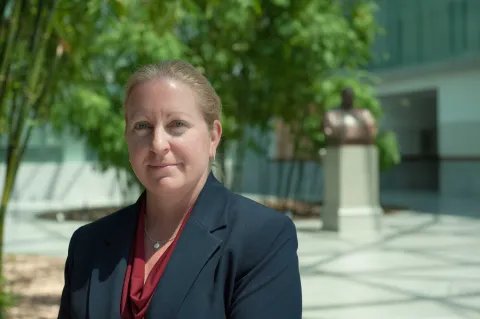
Martha Jane Mears
Martha Jane Mears, probation officer for the Northern District of Texas, joined the Probation and Pretrial Services Office to work on the development of a new case tracking system for probation officers nationwide. She will serve as project lead of court input on the development of the system, working with a team of AO management and subject matter experts.
2017 Director’s Awards
The Director’s Awards, given by the AO director, recognize outstanding performance in federal courts. They recognize outstanding leadership, innovation and efficiency, and commitment to delivering the best possible service to the public. The recipients are nominated by colleagues based on career achievements and contributions to specific projects that have benefited their home courts and the federal Judiciary as a whole.
Director’s Award for Outstanding Leadership
This award recognizes managerial-level employees who demonstrate exemplary stewardship of court resources while advancing programs with a Judiciary-wide impact that improved service to the public. The 2017 recipients are:
David Tighe, circuit executive for the Tenth Circuit, has led a broad range of cost-saving and efficiency initiatives while serving on the Judiciary’s Budget and Finance Advisory Council, the Financial Managers Working Group, and the Circuit Rent Budget Working Group, including spearheading efforts to share administrative services throughout all units in the Tenth Circuit. As a member of the Senior Judge Working Group, Tighe played an integral role in developing new standards for certifying staffing for senior judges. He also worked with smaller bankruptcy courts to consider consolidating administrative structures with district and other bankruptcy courts.
Kathleen Campbell, clerk of court for the Central District of California Bankruptcy Court, has led innovative use of staff sharing on a national scale and helped pioneer services for litigants without lawyers. Using JShare, a Judiciary online service, Campbell’s court offered to other courts such services as staff development and training, information technology, web design, and space and facilities. Providing these services on a contract basis enabled other courts to accomplish important goals without hiring new staff, while minimizing layoffs in the Central District of California. Campbell’s court also helped create electronic self-representation software that dramatically reduced filing errors. The court, which has a large percentage of filers without lawyers, has actively communicated its self-representation services to the public.
Director’s Award for Excellence in Court Administration
Steven Larimore, clerk of court for the Southern District of Florida, has reduced building space, operated a busy court smoothly and efficiently, and worked with bar leaders to promote awareness of the federal Judiciary. He has had an impact far beyond his district. Larimore, who has served on numerous national advisory committees, led an ambitious space redesign in which the district gave up 47,000 square feet of space in three buildings, saving $1.4 million annually.
Director’s Award in Court Technology
Paul Neely, IT security officer for the Northern District of Florida Bankruptcy Court, is a nationally recognized leader in the development of IT security policies and assessments. His research and documentation in IT security, along with his willingness to share his knowledge and experience, has allowed courts nationally to meet critical IT security requirements. A security guide he wrote for his court has been used as a template for other courts.
Director’s Award for Excellence in Court Operations/Mission Requirements
Sara Mainquist, pro se law clerk for the Southern District of Texas, has helped her court, and federal courts across the country, better manage lawsuits filed by prison inmates who do not have lawyers. Mainquist trains all new pro se law clerks in the district, which has one of the nation’s largest state and federal inmate populations. In addition to handling a full case load, Mainquist helps manage the case flow of other pro se law clerks, to ensure efficient case allocation. She also provides assistance to court staff district-wide and handles especially complex cases. Nationally, she has assisted efforts to improve management of staffing and financial resources in pro se prisoner cases, serving on management review teams and as a subject matter expert for staffing formula revisions.
Director’s Award for Extraordinary Actions
Karen Frost, intensive supervision specialist for the Pretrial Services Office for the Middle District of Florida, was credited with saving the life of a defendant through her cool-headed response to a suicide attempt. The evening of December 14, 2016, Frost received a phone call from the defendant, who was despondent and said she had no reason to live. After learning that the defendant had swallowed pills, Frost called the sheriff’s department on a second phone, while continuing the conversation with the defendant. She advised law enforcement of the home’s layout and said she had not seen firearms on the premises. Thanks to Frost’s quick response, the woman was revived, and gradually improved after receiving mental health treatment.
Annual Report 2017
- Annual Report 2017
- Funding/Budget
- The Courts and Congress
- The Federal Bench in 2017
- Accountability and Resource Management
- Facilities and Security
- Public Outreach
- Court Operations and Case Management
- Defender Services
- Probation and Pretrial Services
- Human Resources
- Information Systems and Cybersecurity
- Recent and Proposed Amendments to the Federal Rules
- In Profile

